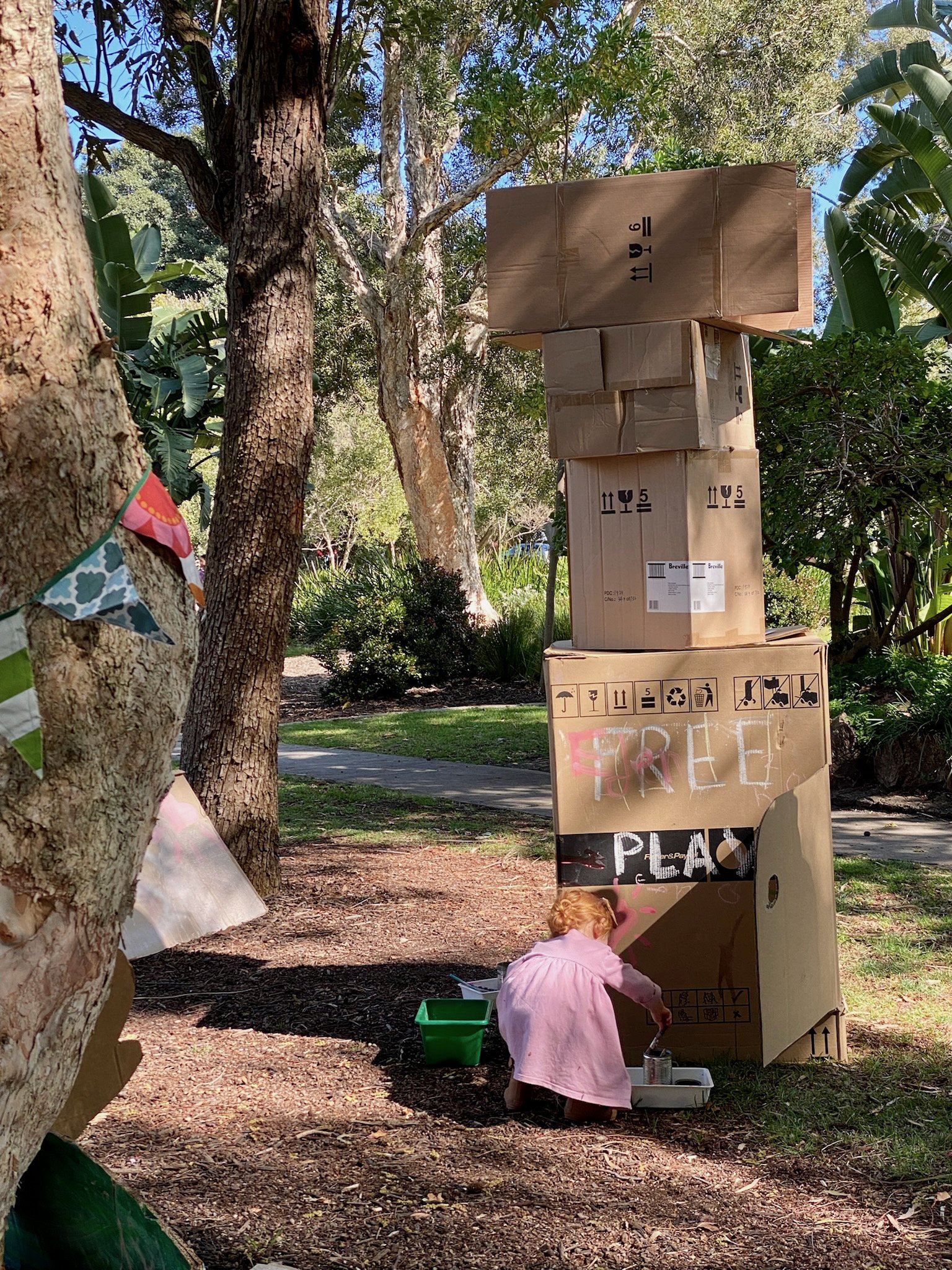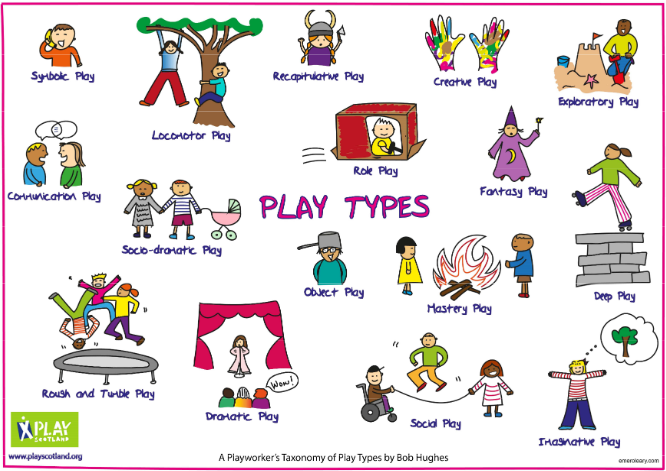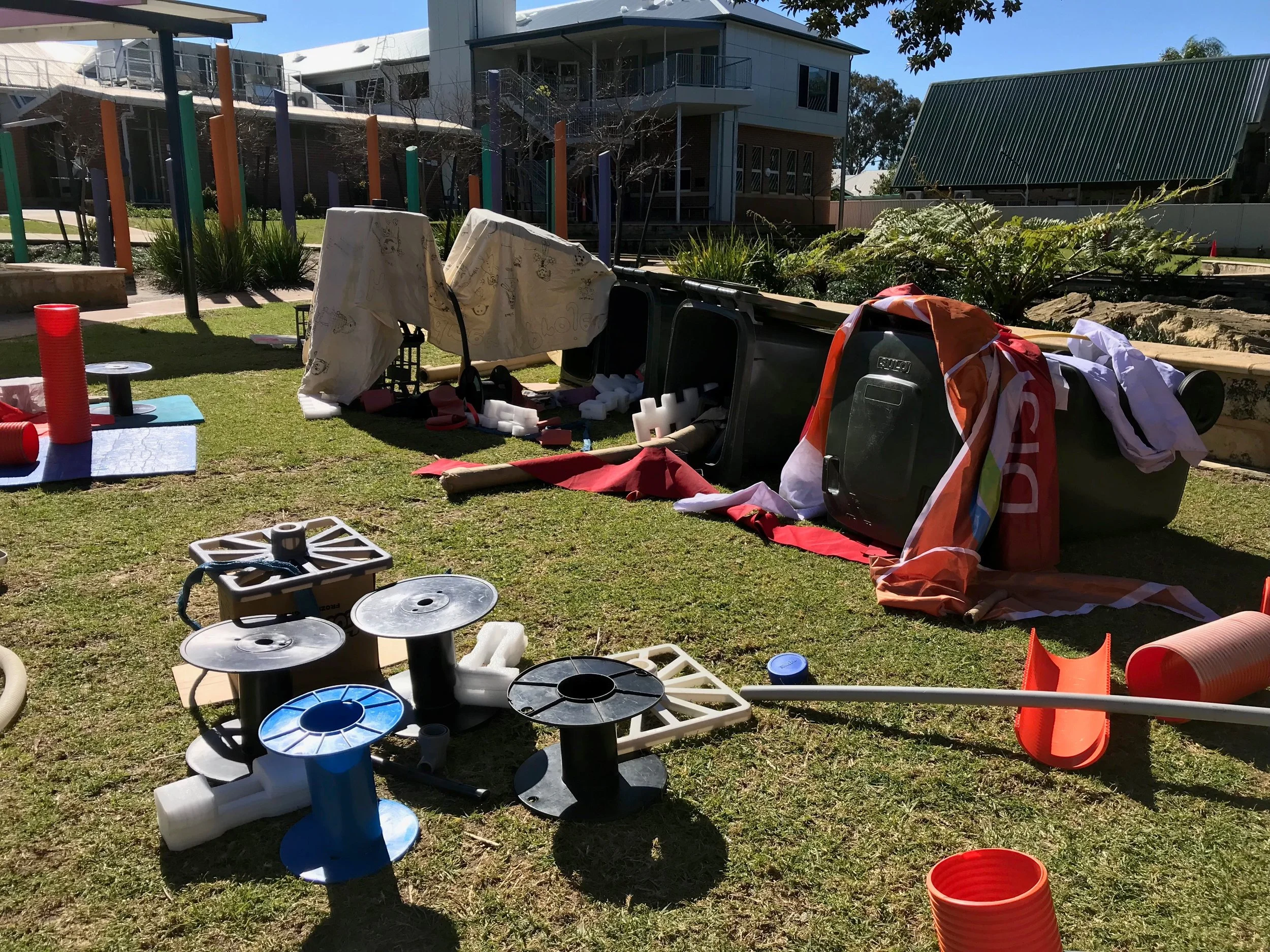
What is play?
It's okay to just play!
Play is our children’s superpower! Play builds brains. Play builds community. Play is fundamental to all mammals.
From adventure, to belonging and seeking security, journeying, hunting and gathering, prospecting and surveying, and feeling empathy for others and the environment –natural and built – play opportunities are all around us.
Children just need TIME, SPACE and FREEDOM to play.
#righttoplay
We’ve learnt about children’s right to play and leisure (Article 31, UN Convention on the Rights of the Child) and use this to guide our thinking about ways to support children’s play. The WA Commissioner for Children and Young People also supports play through their Statement of Commitment to our kids and young folks. And as Play Australia members, we seek out ways to advocate for children’s right to play.
If you are looking to champion children’s right to play then join us and get involved in a play revival across our neighbourhoods, communities, states and countries! We can support play one play opportunity at a time.
What are play types?
There are numerous types of play that children engage in, from role play to symbolic play, communicative play to rough and tumble play, and so much more. Play legend, Bob Hughes, came up with about 16 types of play which you can delve into in his book: A Playworker’s Taxonomy of Play Types, London: PLAYLINK, UK (1996).
Of course, children don’t call these types anything really, they just play. But here’s what some adult experts have said about play types and their benefits…
Playworker, Rusty Keeler, takes a dive into play types with some practical examples to get you into action
The Gowrie NSW describes stages and types of play for early childhood
Play researcher and playworker, Morgan Leitcher-Saxby explains play types in brief
Take 7 minutes with Robyn Monro Miller to see how parents and carers can support play
Play Scotland has a downloadable play types poster you can share with others
Loose parts you say?
Yes! Loose parts are everyday materials that are reused in novel ways, without a pre-defined use. Loose parts work especially well in pop-up play spaces. The “theory loose parts” was coined by architect, Simon Nicholson. Nicholson’s four recommendations for loose parts play speak to all types of play:
Give top priority to where children are
Let children play a part in the process
Use an interdisciplinary (or holistic) approach
Share resources and information with others
Loose parts can be used in small or large spaces such as school classrooms or indoor and outdoor play areas, with mums and bubs groups, event spaces and temporary spaces where children can play for a set period of time.
Some of our pop-up and loose parts play examples
Scribblers Festival family weekend, Subiaco
Arty Farty Children’s Christmas Party, Leederville
Auskick Awards Night, Wembley
Loose parts activations, City of Stirling, Doubleview
Lilly's 'pink' birthday party, Innaloo
'My Story My Home', Awesome Arts Festival, Art Gallery of WA, Perth
Spring Show, West Leederville Primary School
Our very own Perth-based REmida Creative Reuse Centre is a fabulous one-stop-shop for all things loose parts!
Download our play brochure now.
Loose parts resources
Muddy Faces Theory of Loose Parts Hub (UK)
Play Scotland Loose Parts Play
Simon Nicholson, A theory of loose parts (1971) (PDF)
Want some support for pop-up play and loose parts? Then get in touch with us for a chat.
“Every child has the right to rest and leisure, to engage in play and recreational activities appropriate to the age of the child and to participate freely in cultural life and the arts.”
Play Australia’s national campaign to support children’s play, everyday.
Loose parts materials in action at a local school.
Children's Scrapstore Play Pods (UK)
“All children start their school careers with sparkling imaginations, fertile minds, and a willingness to take risks with what they think.”
— Sir Ken Robinson.
“Children go where they find sincerity and authenticity.”
— Eric Cantona.


